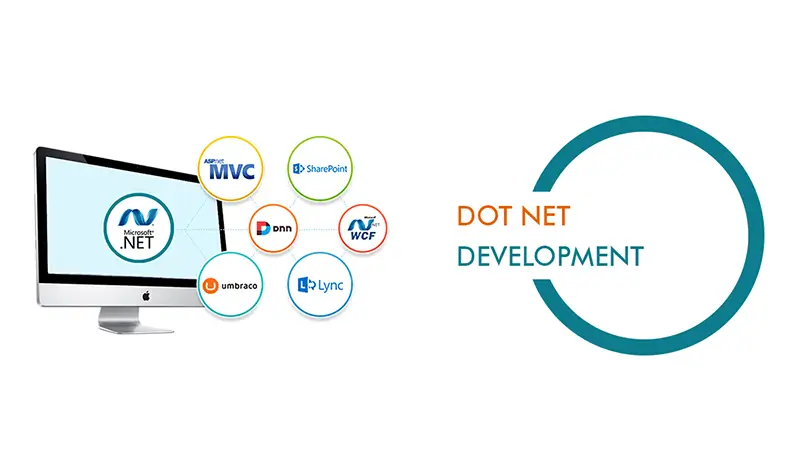Today, .Net Development is most prolific, be it web portals for online presence, eCommerce applications, Govt web applications, or any business-class web apps that require performance and security.
The .Net framework comprises a set of large library bring about different programming needs such as web development, networking among many other algorithms, interface design, database connections, and data access. Consequently, the arrival of dot Net programming facilitated and made dot Net application development much extensive.
What Is .NET Development?
The .NET (pronounced “dot net”) framework allows developers to build apps across many operating systems and programming languages. According to Microsoft, it was designed to “provide a consistent object-oriented programming environment whether object code is stored and executed locally, executed locally but web-distributed, or executed remotely.”
Additionally, .NET minimizes software deployment and versioning conflicts, promotes safe execution of code, eliminates performance problems, and ensures that code based on the framework integrates with other code.
When Do You Need .NET Web Development?
The .NET framework makes application development simpler with programming building blocks that can be used by any developer for a variety of projects. Known as the object-oriented approach, this model delivers small pieces of code that are easy to integrate. Because the code pieces have already been tested, this method gives developers better testing and the ability to address issues.
Other benefits of .NET include the following:
- A wide range of languages can be used within it.
- It incorporates robust security features.
- It has a built-in caching system.
- It can be used by businesses of any size.
- It is supported by Microsoft and a large developer community.
These benefits make .NET very flexible, so it can be used to develop a wide range of applications, from the simple to the complex. It is particularly useful for:
- Enterprise-scale projects such as an ERP application for a manufacturer, a data mining and analysis system for a large financial firm, a climate information gathering platform for a government entity, or a logistics tracking infrastructure for a shipping company
- Projects that require cross-platform compatibility such as an app that electric utility field workers can use to monitor vegetation growth near power equipment
- Projects that must be easily scalable such as a subscription service expected to grow as more customers join
If your planned application fits into one of these categories or if the features mentioned could benefit your project, then it’s time to look for quality .NET development services.
How to Hire a .NET Developer?
When you decide it’s time to hire a .NET developer, start by thinking about the problem you need to solve and what you want the result to look like. These plans might change as the project unfolds but having something in mind initially will help you identify which developers are best suited to assist you. When seeking a developer, look for the following characteristics:
Trustworthiness
Does the vendor have a good reputation? You can find out by making sure the company website is authoritative, looking at reviews, and finding out how long the vendor has been in business.
Technical skills
Look for a company whose team members have the training and experience to complete your project. Ask about similar projects they’ve worked on in the past and request contact information for customers willing to provide a testimonial.
Soft skills
The developers working on your project must have skills beyond the technical. Their ability to communicate must be excellent so you can be aware of what’s happening at each stage of your project and easily make changes to the process if needed.
Alignment
Even if you feel developers from a particular provider have the technical and soft skills to meet your requirements, and you feel you can trust the company, there might not be a good fit in terms of language, culture, or working hours. Find a vendor that has the right characteristics in these areas as well.
Support
Make sure the company you choose will provide post-project support, especially if your application is highly complex.
Conclusion
Given its flexibility and other benefits, .NET is the perfect foundation for many enterprise application projects. If yours involves solutions that must be deployed enterprise-wide, that require cross-platform compatibility, or that must be easily scalable, consider hiring a .NET development services provider to help you turn your application vision into a highly functional software solution that can assist you in meeting your company’s goals.







